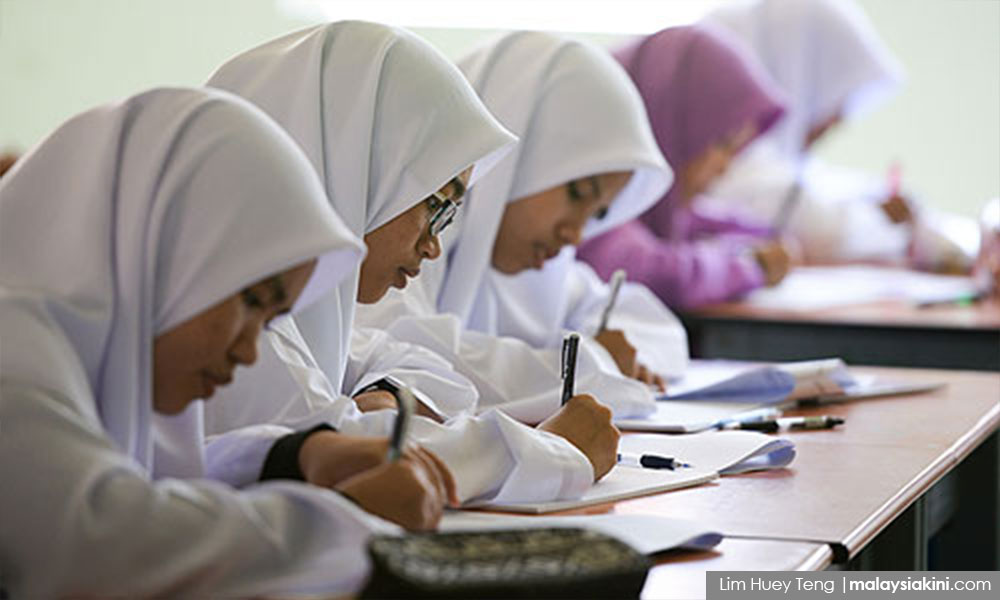LETTER | We, the undersigned, stand in solidarity with students and call for an overhaul of the school counselling system, to protect the physical, mental, and emotional wellbeing of students and to ensure respect for their dignity.
Context
In recent weeks, former and current school students have come forth, sharing their experiences with teachers and school counsellors. Many detailed instances of sexual harassment, ignorance, and an overall lack of sensitivity.
This conversation succeeded one student’s revelation of her teacher making “rape jokes” within the setting of a classroom. This student’s plea for assistance from the school counsellor was met with great reluctance and a dismissive attitude. This sparked a nationwide movement demanding safer schools.
School counsellors and mental health
We strongly endorse the statements issued by various other organisations condemning the heinous culture of misogyny and sexual harassment being perpetuated in schools. However, we find it necessary to address the significant correlation between unethical counselling practices and the mental wellbeing of students.
Determined to shed light on the matter, KauOKTak provided students with platforms to share their encounters with school counsellors, particularly on Instagram polls and a Padlet page.
The data obtained through these surveys are not meant to be systematically representative of all Malaysian school counselling units. However, we believe that allowing these misconducts to affect even one child is one child too many. These lived experiences of students can be broadly categorised as follows:
1. School counsellors breached confidentiality by, among others, sharing student issues with other teachers and looking through students' personal devices without consent.
2. School counsellors sexually violated students who come to them for assistance, physically and verbally.
3. School counsellors enabled a culture of victim-blaming. They have also used derogatory terms in addressing students who identify as part of the LGBTQ community.
4. School counsellors displayed an unfavourable lack of urgency in attending to students who display serious signs of poor mental wellbeing. More often than not, counsellors limit their involvement to conducting EQ and aptitude tests and advising “problematic” students who violate disciplinary rules.
5. School counsellors lack sensitivity to deal with students. For instance, students who experience suicidal ideations are rarely taken seriously. Instead, they are told that their suicidal thoughts can be ‘shifted elsewhere’.
This demonstrates a severe lack of attention towards the students’ mental state. Counsellors are quick to gloss over symptoms of mental illnesses and seldom address the root cause of mental health issues.
6. School counsellors lack awareness of mental health-related issues. Concerns of mental health illnesses like depression were quickly dismissed and labelled as “being possessed”.
There appears to be a lack of initiative on the part of school counsellors in utilising widely available academic material on mental illnesses to further educate themselves.

Responsibilities of school counsellors
We repugn this grave dereliction of duty many school counsellors have shown. School counsellors play a vital role in enhancing and protecting a child’s experience in school. Their duties extend far beyond career guidance and the bare minimum of conducting EQ tests.
Instead, they are expected to remain proactive in ensuring that students’ physical, mental, and emotional wellbeing is protected and promoted as best as possible.
Counsellors must be adequately informed on matters pertaining to mental health and mental illness, the proper interventions warranted, gender sensitivity, and general ethics.
An unsafe school environment where teachers and counsellors are unempathetic and unsupportive have been statistically proven to increase the risk of mental illnesses amongst students.
The accounts of students, both current and former, are deeply troubling. Students are bound to experience severe repercussions such as trauma, increased anxiety, low self-esteem, and an overall deterioration of academic and co-curricular performance.
Additionally, students are also bound to lose trust in the school counselling system and educational institutions as a whole.
The way forward
We stand in solidarity with all who encountered uncomfortable and traumatising experiences with school counsellors. We believe that every child has an inherent right to a safe schooling environment and this includes having efficient and ethical school counsellors.
This is in line with Goal Four of the United Nations Sustainable Development Goals which provides for quality education for all children. Therefore, we call for:
1. Registration under the Board of Counsellors of Malaysia in accordance with the Counsellors Act 1998 as a prerequisite to being appointed as a school counsellor.
2. A critical review of counselling practices in schools by the Education Ministry.
3. Implement stricter enforcement mechanisms to ensure school counsellors maintain the code of ethics in exercising their roles.
4. The active involvement of students, parents, and teachers in ensuring unethical conducts of counsellors do not go unchecked.
Signatories:
1. KauOKTak
2. Biji-Biji Initiative
3. Bulan Sisters
4. Connect Malaysia
5. Demokrat Kebangsaan
6. Empathy For Youth
7. Hakam Youth
8. Me.reka
9. Mindakami
10. Misi Solidariti
11. Monsters Among Us
12. MYER Movement
13. NSWD
KAUOKTAK is a youth-led initiative with the goal of destigmatising mental health issues and counselling among secondary school students.
The views expressed here are those of the author/contributor and do not necessarily represent the views of Malaysiakini.

